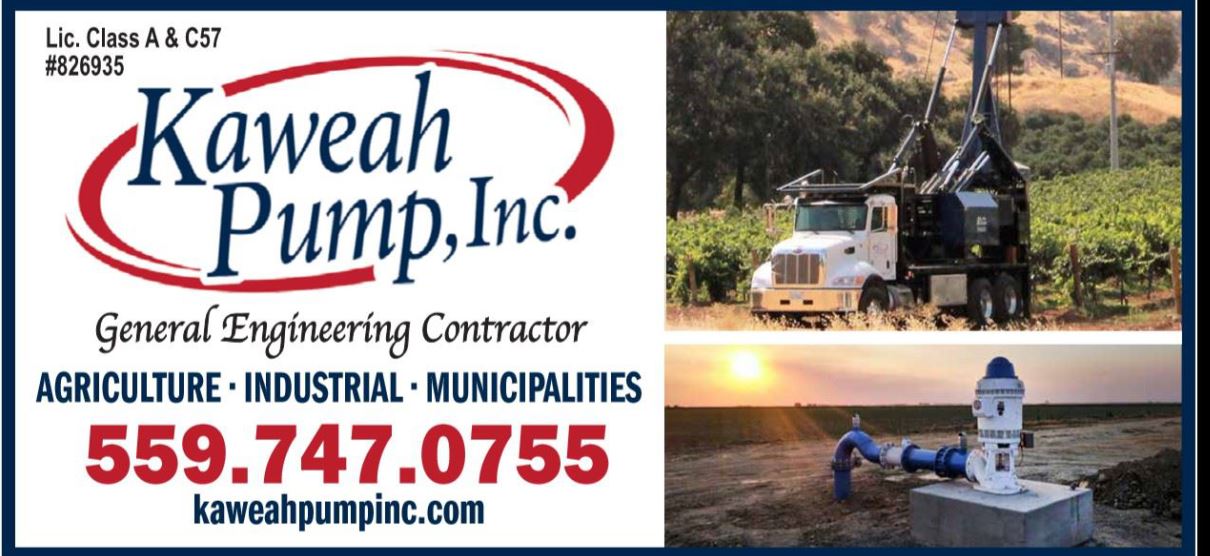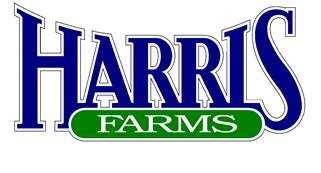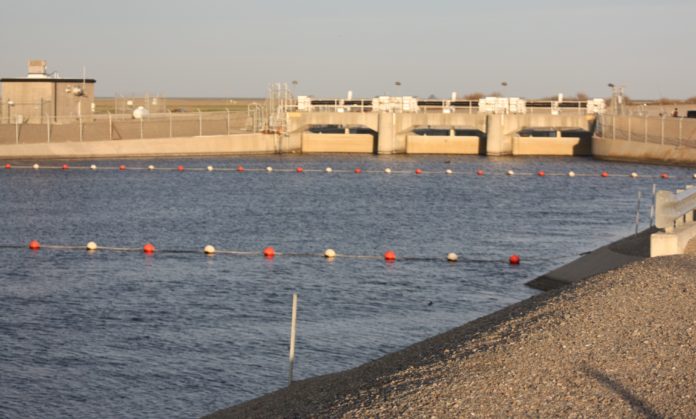 The Westlands Water District held its board of directors meeting on Tuesday, October 15, 2019 at its Fresno headquarters. Chairman Don Peracchi opened the meeting at 1:00pm. He gets right down to business and there were no corrections or additions to the agenda, the minutes were approved and we got to jump right into the auditor’s auditory report. It was beyond fascinating and I recommend you request a copy and dig in. All I can say is the board approved. In fairness the young lady’s presentation was crisp and efficient. A much more detailed report was presented to the Finance & Administration committee earlier in the day. Which brings up a point; WWD is a large district, the largest I guess. There’s a nine member board and almost everything is reviewed in committee. These committees are open to the public and their recommendations carries a lot of weight with the board. It appears at the regular board meetings the board just goes along with anything proposed. That’s not true. The action items and reports presented to the board have been well vetted in detail at the committee level. If all of the items before the board were teased out in the board meeting it would be a very long meeting indeed.
The Westlands Water District held its board of directors meeting on Tuesday, October 15, 2019 at its Fresno headquarters. Chairman Don Peracchi opened the meeting at 1:00pm. He gets right down to business and there were no corrections or additions to the agenda, the minutes were approved and we got to jump right into the auditor’s auditory report. It was beyond fascinating and I recommend you request a copy and dig in. All I can say is the board approved. In fairness the young lady’s presentation was crisp and efficient. A much more detailed report was presented to the Finance & Administration committee earlier in the day. Which brings up a point; WWD is a large district, the largest I guess. There’s a nine member board and almost everything is reviewed in committee. These committees are open to the public and their recommendations carries a lot of weight with the board. It appears at the regular board meetings the board just goes along with anything proposed. That’s not true. The action items and reports presented to the board have been well vetted in detail at the committee level. If all of the items before the board were teased out in the board meeting it would be a very long meeting indeed.
Action Items
Next was the adoption of resolution No. 119-19 authorizing the filing of a notices of statutory exemptions from CEQA and other legal housekeeping. General Manager and attorney Tom Birmingham gave a fairly compact explanation and history of how water service contracts have been impacted by changes in acreage allowed to participate and the WINN Act for 1.5 million a/f annual deliveries. Staff recommended the board adopt the resolution and the board obliged. Westlands will pay off the contract with the Bureau for as long as it takes – if I understood correctly.
Birmingham’s report was next and he had Russ Freeman give the water report. Freeman said WWD used 65,000 a/f of water during September. About 250 a/f was transferred to San Luis WD. SLWD is big, really big on transfers. It has become an art for them. He sees up to 120,000a/f of carryover of CVP water. Tom Boardman gave his report saying the federal Jones plant had to cut back to one unit out of five. The X2 standard is tight this year and the US Bureau of Reclamation is participating in keeping the salt out of the Delta. He sees about 350,000 a/f of federal water in San Luis Reservoir during October, which is good for this time of year. Under normal conditions he expects SLR to fill in March. Boardman explained the Bureau didn’t want to strand any salmon later even with the higher than average storage. Directors William Bourdeau asked why and Boardman said with the new biops and I think perhaps with the NASA Airborne Snow Survey as well, there is hope the Bureau will be able to make more accurate and earlier allocations.
Birmingham gave an update on the biological opinions since Shelly Ostrowski was contributing by video from Sacramento and for some reason we couldn’t hear her. He said the updated biops will give the Bureau enough information so it won’t be hoarding water when it isn’t necessary. Ostrowski got audio back and said the amount of data available will be much greater. The Biops should be out by the end of the month and adopted by the end of the year. Bourdeau said he believes this will help the environment but asked how the benefits can be monitored. Birmingham said the fisheries biologists expect a better winter run salmon with less entrainment in the Delta for all species.
Legislation and Other Reports
Birmingham reported Governor Gavin Newsom vetoes SB1, which was good news. Kat Boren reported there have been public meetings throughout the district for SGMA outreach and other matters which were beneficial. Diana Giraldo reported the social media engagement has also been very effective.
Director Dan Errotabere reported the Family Farm Alliance has been producing good programs. I believe he’s on the FFA board. Freeman reported on the San Luis Delta Mendota WA meeting and the recent ACWA Region Six & Seven meeting. He said to beware of SB1 rising from the dead. California Secretary of Natural Resources Wade Crowfoot attended and there will be a November 7th Water summit in Fresno. Director Frank Coelho reported WWD ordered 180 meters to be installed on the wells in the district. The adopted resolution No. 120-19 from the Fresno County multi-jurisdictional Plan was made to allow more grant eligibility from FEMA. With the adoption of the resolution WWD can now apply for drought assistance grant money from FEMA. The next resolution No. 121-19 was presented by Kitty Campbell. Adoption indicates acceptance of the Westside San Joaquin IRWM plan which will make further grant money available to WWD. The board adopted the resolution.
The next action item asked the board to approve a proposed new form of easement for projects exempt from CEQA and allow the GM to engage in this area directly with landowners. The board approved.
SGMA
Groundwater conditions was the next report. Campbell gave the 2019-2020 situation saying the number of wells and amount pumped was recorded and placed in the report. This year 64,000 a/f has been pumped so far with 100,000 a/f expected to be pumped by year’s end. Like every other district in the Valley Westlands is trying to encourage more surface supply usage. However, its surface supplies are hostage to Delta pumping. That’s a reason the timing of allocations can be so important.
Next the board donated money for scholarships to students living in Westlands pursuing a water related degree at West Hills, Fresno City College or Fresno State. This will cost about $97k and be raised from water fees. Director Coelho was a bit skeptical about how the money will be raise. He asked if it is the district’s business to take money away from growers and give it to others. He pointed out many of the growers in the district also give scholarships. Other directors, Todd Neves and  Jim Anderson acknowledged Coelho’s position but felt this will be an investment in Westlands. WWD already awards $1,000 scholarships to all the high schools in the district but it isn’t dependent on what major the recipient pursues. Birmingham said there has been difficulty finding qualified employees in some of the positions the district needs filled. The board approved the new scholarship program and Bourdeau suggested keeping track of the progress of the recipients.
Jim Anderson acknowledged Coelho’s position but felt this will be an investment in Westlands. WWD already awards $1,000 scholarships to all the high schools in the district but it isn’t dependent on what major the recipient pursues. Birmingham said there has been difficulty finding qualified employees in some of the positions the district needs filled. The board approved the new scholarship program and Bourdeau suggested keeping track of the progress of the recipients.
COO Jose Gutierrez presented the board with a proposal to allow more flexibility for banking by allowing banking outside WWD provided the water comes back within 10-years. There is a provision to recolor the water to prevent any from

being stranded outside the district. There is also a provision for growers who have left over surface supplies to bank that water for their own credit. Aquifer Storage Recovery, ASR allows surface water to be poured back down a well. Not just any well and not just any water quality. This isn’t injection well recharge. One of the growers weighed in on how to mitigate a potential 30,000 a/f from SLR. The concern is; if there is a spill will the Bureau not want to allocate more water since the contractors are spilling? He also wanted to know how much a spill would cost. That can be figured out but it needs to be figured out earlier than later to run a business. Birmingham pointed out it is difficult for staff to estimate what the costs are year to year. There are some costs that can be fixed and that will help growers in budgeting as well as the district. The board then considered amending its transfer policy to include more water types and accounts upto 30,000 a/f. This requests was made when growers were looking at a scenario where they could lose carryover to spill. Freeman told the board the Bureau will have to get its biz into it. Coelho said he doesn’t want to see CVP water moving out of the district when there is less than a 100 percent allocation. Neves said it’s the Bureau’s fault. Birmingham pointed out it will require the Bureau to give its OK. Grower Kevin Assemi of Maricopa Orchards said it is imperative to prevent spills. Bourdeau agreed and moved to accept the change of the return requirements. The motion died from a lack of second.
GSP Review
Campbell gave a SGMA presentation saying the Westlands’ GSP has been posted online since September. She  started at the start with Chapter one. She went through the GSP and compliance with SGMA requirements. By the end of 2022 a groundwater allocation will be developed but all the wells will have to be monitored. The allocation will be distributed by gross acreage and could vary between .46 a/f and .6 a/f. Recharge projects will allow for credits. There is a lot of specifics yet to be developed but the overarching design is to encourage conjunctive use with surface water. There could also be cases where subsidence progression in a particular area could trigger a policy to remove growers from groundwater but they would be protected somehow. Campbell said there could be an incentive program where WWD will help the impacted growers find surface water. There was some questions about this and it will be refined. The budget was covered as was governance. Staff said any groundwater trading or storage or recharge will be subject to the GSP. SGMA gave a wide swath of authority to the GSAs. An advisory committee will be established with 60 percent of the members will be groundwater pumpers with the remainder being DACs, NGOs and domestic pumpers. There will be 8-11 members and farmer groups could be NGOs. The second committee will be the technical advisory committee made up of people with specialized knowledge and this committee will look into grievances and decide whether or not to pass them along to the board with recommendations. There will be another outreach workshop this Friday and a special meeting at the Five Points offices later on during the month. The actual adoption of the GSP is slated for the December board meeting. The board thanked Campbell for her hard work and she said it was a labor of love not unlike the pain of childbirth.
started at the start with Chapter one. She went through the GSP and compliance with SGMA requirements. By the end of 2022 a groundwater allocation will be developed but all the wells will have to be monitored. The allocation will be distributed by gross acreage and could vary between .46 a/f and .6 a/f. Recharge projects will allow for credits. There is a lot of specifics yet to be developed but the overarching design is to encourage conjunctive use with surface water. There could also be cases where subsidence progression in a particular area could trigger a policy to remove growers from groundwater but they would be protected somehow. Campbell said there could be an incentive program where WWD will help the impacted growers find surface water. There was some questions about this and it will be refined. The budget was covered as was governance. Staff said any groundwater trading or storage or recharge will be subject to the GSP. SGMA gave a wide swath of authority to the GSAs. An advisory committee will be established with 60 percent of the members will be groundwater pumpers with the remainder being DACs, NGOs and domestic pumpers. There will be 8-11 members and farmer groups could be NGOs. The second committee will be the technical advisory committee made up of people with specialized knowledge and this committee will look into grievances and decide whether or not to pass them along to the board with recommendations. There will be another outreach workshop this Friday and a special meeting at the Five Points offices later on during the month. The actual adoption of the GSP is slated for the December board meeting. The board thanked Campbell for her hard work and she said it was a labor of love not unlike the pain of childbirth.
The financial report was next and the board approved. WWD also subscribed to Politico Pro Service. How about that? The district will develop an outreach program to help local communities to find grant funding. Good for them. Then it was public comment. An Indian tribe, the Winnemem Wintu said the raising of Lake Shasta will flood sacred land and cover ancient  ceremonial sites being used currently. And then closed session cleared out the peanut gallery. With a twist; there was a noticed special session that went right into closed session before closed session; if I understood correctly.
ceremonial sites being used currently. And then closed session cleared out the peanut gallery. With a twist; there was a noticed special session that went right into closed session before closed session; if I understood correctly.
DISCLAIMER OF RESPONSIBILITY; Waterwrights strives to provide his clients with the most complete, up-to-date, and accurate information available. Nevertheless, Waterwrights does not serve as a guarantor of the accuracy or completeness of the information provided, and specifically disclaims any and all responsibility for information that is not accurate, up-to-date, or complete. Waterwrights’ clients therefore rely on the accuracy, completeness and timeliness of information from Waterwrights entirely at their own risk. The opinions expressed in this report are those of the author and do not represent any advertisers or third parties.
ALL RIGHTS RESERVED. Copyright 2019 by Don A. Wright
Westlands Water District
3130 N. Fresno Street, Fresno CA 93703 Phone:559/224-1523
Board: Don Peracchi-President, Dan Errotabere – Vice President, Jim Anderson, William Bourdeau, Frank Coelho Jr., Larry  Enos, Ryan Ferguson, Stan Nunn & Todd Neves.
Enos, Ryan Ferguson, Stan Nunn & Todd Neves.
Staff: Tom Birmingham-General Manager, Jon Rubin-Attorney, Jose Gutierrez-COO, Russ Freeman-Deputy GM Resources, Diana Giraldo-Public Affairs Representative, Shelly Ostrowski-Associate GM Water Policy, Kitty Campbell-Supervisor of Resources, Bobbie Ormonde-VP of Finance & Administrative Affairs
About: Without irrigation, farming in the Westlands area of California would be limited and ineffectual. The history of Westlands is one of continual adaptation, careful water stewardship and advanced technology. By maintaining a fierce commitment to sustainability, the Westlands’ comprehensive water supply system continues to adapt, educate, and surpass conservation goals. Throughout its history, Westlands Water District has demonstrated a lasting dedication to water conservation and recognized that the long-term survival of its farms depends on the effective management of California’s precious water resources. From www.wwd.ca.gov






























